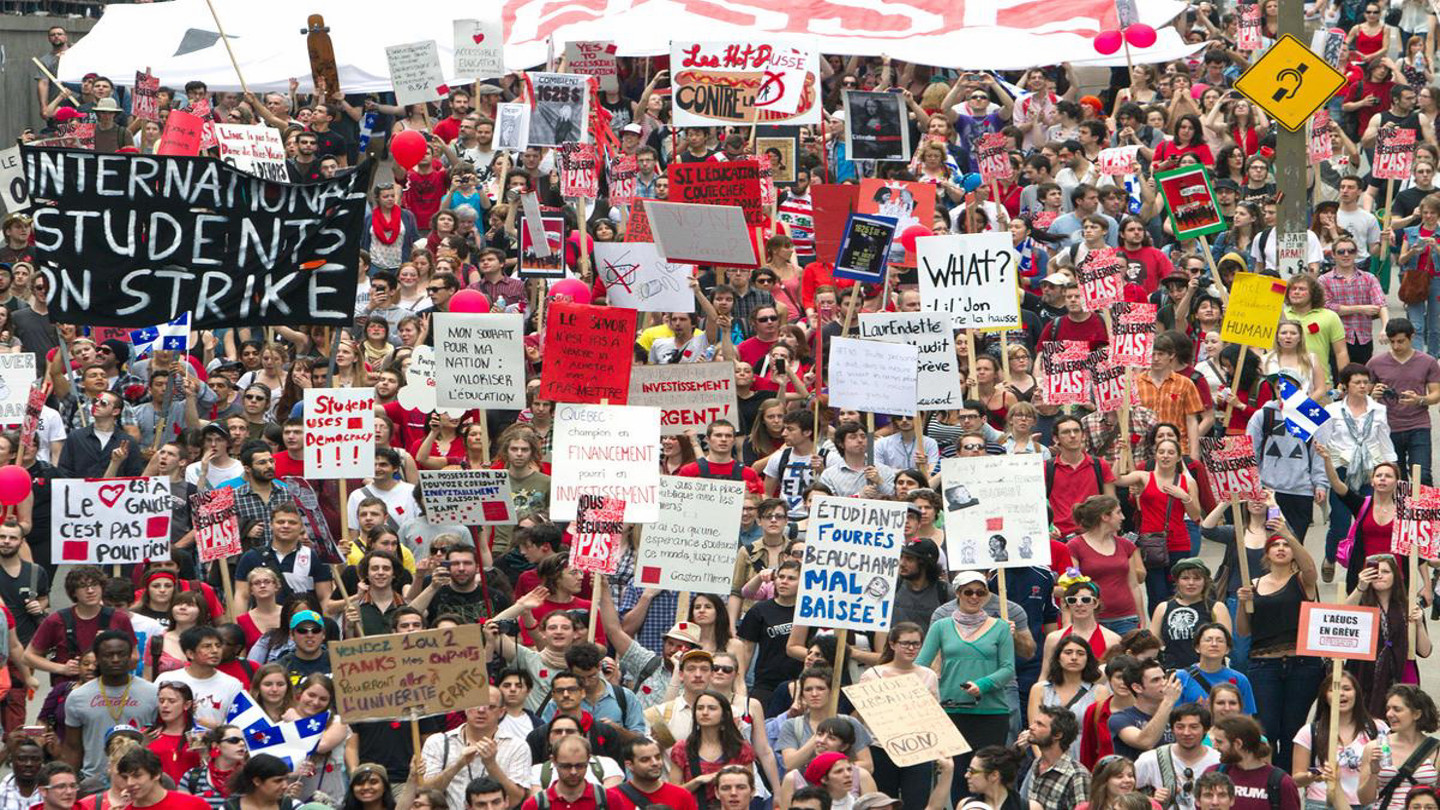Protests Without Borders: The Global Legacy of Student Activism
July 10, 2025

UVic geographers Reuben and CindyAnn Rose-Redwood recently published a piece in The Conversation considering the history and impacts on international student protests and civil disobedience. Reflecting on their recenly published book, International Student Activism and the Politics of Higher Education, the Rose-Redwoods demonstrate that attempts to silence international student protest in the U.S. are just the latest chapter in a long history of attempted control and suppression.
Political Protest as Part of the Educational Experience
The article responds to the March 2025 detainment of Turkish PhD student Rümeysa Öztürk, who was pulled off the street by U.S. federal agents for co-authoring a pro-Palestinian op-ed. Her case ignited international outrage and exposed how international students in the U.S. are increasingly vulnerable to state retaliation. However, the Rose-Redwoods argue that Öztürk's activism is not an isolated incident. From the post-WWI Korean independence movement to Chinese student protests following the Tiananmen Square massacre, students have long used their time abroad to fight for justice back home or abroad.
Front-Stage and Back-Stage Resistance
Through examples from their book and recent events, the authors highlight two forms of international student activism: “front-stage” and “back-stage.” Front-stage actions — such as public protests, occupations, and demonstrations — are highly visible and often carry greater risk, particularly for students on precarious visas.
But with political repression intensifying, many students are turning to "back-stage" forms of resistance. These include organizing behind the scenes, advocating through student governance, or writing op-eds and policy critiques. These are ways to engage politically without drawing attention from immigration authorities.
The Future of Higher Education in a Globalized World
At the heart of the article is a challenge to narrow, credential-focused visions of higher education. When government officials such as U.S. Secretary of State Marco Rubio argue that international students are “here to study, not protest,” they reduce education to a transactional experience, stripping it of its transformative potential. But the Rose-Redwoods, echoing thinkers like John Dewey, assert that education in democratic societies must be more than job training, it should foster empathy, critical inquiry, and a shared commitment to justice.
They argue that universities must support international students not just as tuition payers, but as full participants in campus life. Involvement in campus activism encourages critical thinking, civic engagement, and the kind of global solidarity that both universities and government's claim to value. Suppressing dissent doesn’t just hurt the students involved, but actively erodes the democratic values that higher education is meant to uphold.
As geographers, the authors end by turning to the discipline’s potential for bridging divides. Drawing on Kropotkin’s belief that geography should counteract nationalism and xenophobia, they suggest that geographic education has a crucial role to play in challenging prejudice, fostering solidarity, and cultivating a sense of shared global responsibility.
